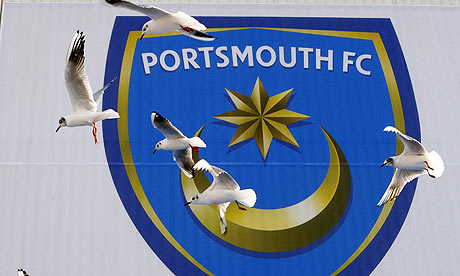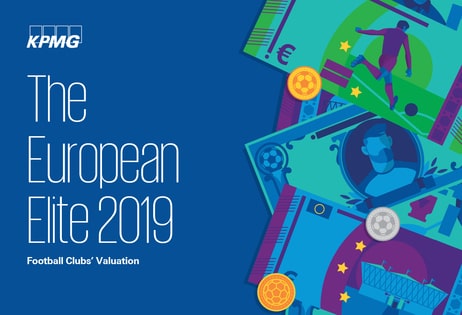The Pompey Supporters' Trust, fans who have devoted oceans of time to the battle for the soul of their club, remains the preferred bidder to buy it out of its second administration, against the intense, furious opposition of Balram Chainrai, a lender of money from Hong Kong. Chainrai – with a mortgage over the club's assets to secure £17m owing to him from loans made at eye-watering rates of interest – is last man standing from Pompey's extraordinary, bloody chronicle of rapidly changing overseas owners.
First, now looking like a model of good sense, was Milan Mandaric, who bought Portsmouth in 1999 from a previous financial crisis then cashed in around £50m personally when he sold it as a Premier League club in 2006 to Alexandre "Sacha" Gaydamak. The football agent Pini Zahavi introduced Gaydmak, whom he knew through connections in Israel, and Zahavi has confirmed he was paid a commission for doing so.
An Israeli-Russian living in Paris, Gaydamak was only 29 when he bought his Premier League asset, but always claimed it was his money, not linked to his father, Arkadi, a Russian who in October 2009 was prosecuted for money laundering. That charge was dropped this year when he pleaded guilty to a lesser charge.
Under Gaydamak, his chief executive Peter Storrie, and the manager Harry Redknapp, Portsmouth spent their Premier League gold, and a fortune of Gaydamak's money, accumulating players on enormous wages while investing comparative peanuts in the club's infrastructure. Pompey won the FA Cup in 2008, making a financial loss that year of £17m, and were facing collapse just months after Sol Campbell, Lassana Diarra and Nico Krancjar ran around Wembley with the cup.
Sacha Gaydamak's money troubles coincided with a collapse in his father's fortunes, but his spokespeople said the global recession was Sacha's undoing, and that he had allowed Storrie and Redknapp too much freedom with his money. In August 2009 Sacha was negotiating to sell the club to Sulaiman al-Fahim, a central figure in Dubai's property bubble, and originally frontman for Sheikh Mansour bin Zayed al-Nahyan's purchase of Manchester City, before being moved aside.
Fahim delayed, and Storrie, again with Zahavi's contacts, said he had found hugely wealthy buyers for the club from the Middle East. That deal was fronted by Ali al-Faraj, a Saudi Arabian who never actually came to England at any point during his involvement as the owner of Porstmouth football club.
Gaydamak was preparing to sell the club to Faraj when sources close to him say he was spooked by the mention of Chainrai's name, and that of Chainrai's partner, Levi Kushnir, as possible financiers of the Faraj consortium. Chainrai and Kushnir had shortly before that won a court case in Israel against Arkadi Gaydamak, who had failed to pay them £18m owing on a deal to buy their property company, Ameris.
Micah Hall, a Portsmouth supporters' trust member and writer who has dug deeply into the tangled history of the club during the chaos which followed, has reported that Arkadi Gaydamak was also being chased for money owed to a money lender in Israel, Shelly Narkis.
On 29 August 2009, Sacha Gaydamak sold the 111-year-old English south coast football club to Fahim, rather than the Israeli consortium he suspected were operating with Faraj as a front. Storrie fumed publicly that they had missed a golden opportunity in Faraj and his backers. Fahim, then, did not have the money required to dig Portsmouth out of its downward plummet and after just six weeks the new consortium, via a company registered in the British Virgin Islands owned by Faraj, did take over.
The new ownership's most visible representative, immediately, intensely involved in running the club, was a belligerent Israeli, Daniel Azougy. He was soon exposed as a convicted fraudster, disqualified from acting as a lawyer in Israel for 14 years, who had just seven months earlier been given a suspended prison sentence for handing false documents to the Israeli stock exchange.
Hall has reported that Azougy was in effect working for Narkis, seeking to collect on Arkadi Gaydamak's debts, from the club's expected Premier League windfalls. Azougy has always denied that he works with Narkis. In January 2009 Itzik Kornfein, the chairman of Beitar Jerusalem, which had been owned by Arkadi Gaydamak, held a press conference, saying that a month earlier Azougy, claiming to be a Gaydamak representative, had demanded Kornfein transfer large sums of money out of the football club, some to his own account. Kornfein had refused.
The London-based lawyer Mark Jacob, who acted for the Faraj consortium and worked alongside Azougy, always said they were expecting major funding from a bank, which was pulled just before they took over. So, as it turned out, Chainrai, via another offshore company, Portpin, did lend money to Portsmouth to back the Faraj consortium, £6.5m on 6 October 2009. Chainrai secured those loans with a debenture over Fratton Park and all Portsmouth's assets, a position which, two administrations and a disastrous sale of the club later, still maintains.
Chainrai has always denied he and his partner, Kushnir, were drawn to Portsmouth by any connection with the money they were owed in Israel by Arkadi Gaydamak. Chainrai has portrayed himself, throughout these three years' financial involvement with Portsmouth, as a reluctant owner who lent money to the club because it was in crisis and the people in the consortium behind Faraj asked him to.
The interest charged by Chainrai on his loans has never been itemised in detail, but senior Portsmouth sources believe the £17m still owed to him includes compound interest at high rates. Hall was in the high court after the club collapsed into insolvency in February 2010, and heard that an initial £6m loaned in was due to be repaid with £1m interest within two months, an annual interest rate of 130%.
The club's bank account was frozen when Chainrai first loaned money in, after Her Majesty's Revenue and Customs issued a winding-up petition for £12.4m unpaid tax and VAT. The expected fortunes from Premier League TV rights payments, however, and the sale of players ordered by Azougy, did not materialise because the Premier League withheld Pompey's cash to pay other clubs owed money.
Chainrai loaned more money in, up to £18.5m by 27 October 2009, according to the subsequent report by the first administrator, Andrew Andronikou of Hacker Young. In January 2010 the Premier League embargo was lifted, and following the sale of Younés Kaboul to Tottenham Hotspur, £4m was immediately transferred out of Portsmouth, to Portpin.
In February 2010 Chainrai personally took ownership of the club, replacing Faraj, who had never been to Fratton Park. Chainrai assessed that £35m more was needed to keep Pompey trading, and so three weeks later he declared the club insolvent and put it into administration, with Andronikou appointed as the administrator.
While creditors, including HMRC, lost many millions, Chainrai's involvement with Portsmouth since has been an exercise in trying to get his money back. His representatives accept that remains his motivation now, in opposing the supporters' trust takeover campaign and seeking to buy the club back himself. However, they argue Chainrai wants to put the club on a sound financial footing, otherwise he would not be able to sell it on at a value he hopes will see himself repaid.
In June 2011 Chainrai, who took the club over from administration the first time, did sell, to Vladimir Antonov, a Russian banker. Chainrai retained security over the assets of Antonov's company, CSI. In November Antonov was arrested for alleged bank fraud in Lithuania, which he denies, and in the fallout, Chainrai's security was transferred back on to Pompey itself, and the club went into administration, again.
This second administration, handled by Trevor Birch, of PKF, is culminating in the bitter battle between Chainrai and the PST, supporters who are determined to end this devastating period and own the club mutually, democratically, themselves. Declared preferred bidders after the Football League board failed to approve Chainrai's bid, Ashley Brown, the trust's chairman, says: "We are confident that soon we will finally be free of the succession of distant owners who have no passion for Pompey. Historically, football clubs were founded in their communities, something often forgotten in the modern professional English game. We hope to bring Pompey back into the heart of ours."
If future generations care as much for football as the campaigners fighting for its soul now, they will surely look back at this strange period; the greatest ever boom when, in some fundamental way, the game mislaid its compass.








































